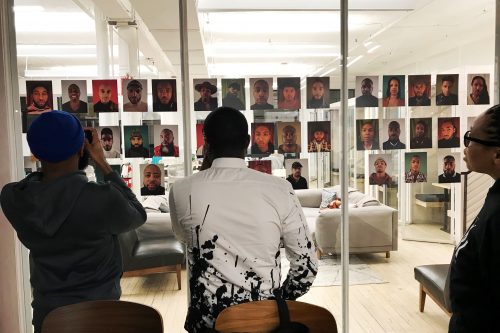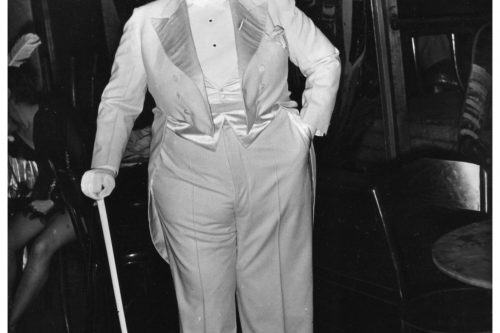“Femme passing” is a phrase that was first introduced to me by an acquaintance on Twitter. Though the expression was new to me, the sentiment definitely was not. The thought process behind “femme passing” is that feminine presenting Lesbian or Queer women are often able to “pass” as straight. In theory, this is quite similar to those People of Color who have “passed” for or continue to “pass” as White for safety or opportunistic reasons. Many feminine presenting Lesbian and Queer Women of Color may argue that “passing” helps them to ensure that they are not easily identified as lesbian or Queer by homophobic or non-LGBTQIA people. Truthfully, this conscious effort could be for safety in some circumstances or, perhaps, to provide the opportunity to explore certain spaces and circles under the auspices of heterosexuality and heteronormativity. There are plenty of Women of Color who feel like they already have a proverbial target on their backs because of their gender and race or ethnicity. For those women, sexuality might be seen as yet another burden to carry or another way to be targeted and justifiably mistreated.
In my opinion, the alleged art of “femme passing” is a blessing and a curse. While it might prove beneficial to avoid many of the stares, slurs, and mistreatment that accompany being obviously homosexual or Queer, it also prevents being easily identified as homosexual or Queer for dating and community building purposes. I find that I am constantly considering when and if I should make my sexuality known in certain circles. I also find that most Queer and Lesbian Women of Color have absolutely no idea that I identify as a woman who loves women. Though the alleged art of “femme passing” may be beneficial in many ways, it is definitely something that has its cons.
The same follower who used the phrase “femme passing” also jokingly stated that, due to “femme passing,” most feminine presenting women have to be the ones to approach a woman that they are interested in because the woman of interest may be completely unaware that the feminine presenting woman is romantically interested in her. I find that quite interesting. The thought process that one has the benefit of shrinking in some situations, but must also be prepared to be audacious in others is somewhat mindboggling. At a certain level, are we asking those who are “femme passing” to continuously “come out” for purposes of building a romantic relationship or establishing community? Do our assumptions about their sexuality based on their appearance lead us to form opinions about what, if anything, they have to offer community in a serious manner? Should they be taken less seriously because they have the option or “fortune” of being able to “pass”?
So, I have to ask, are feminine presenting women truly in a better place because they are able to – to an extent – control who is aware of their sexuality and preferences? Or is there something to be said for the woman who is constantly “code switching” depending on the situations that they find themselves in? Is it “easier” for those women who are masculine presenting/masculine of center or for those women who sport rainbow buttons and belt buckles with all of their outfits? What is there to be said for the anxiety or stress issues that accompany “femme passing”?
I mean, part of me thinks that it is beyond stressful to constantly be torn between announcing your sexuality and keeping it to yourself. Another part fully recognizes the problems that accompany being “obviously” Lesbian or Queer. The irony of it all is that so many who are obviously “not straight” seem to envy those who are “passing” and those who are “passing” wish that they truly had the space to be who they are at all times.
Arguably, some women who are “passing” may very well believe that they are being themselves with only slight edits. I convinced myself of precisely this for quite some time. Though I still stand by the thought that you do not have to “come out” to any and everybody, I recognize that you are sometimes limiting yourself and other people’s ability to get to know you when you choose to edit the parts of you that you believe they will struggle with.
I often wonder what it “looks like” to be a femme who is not “passing.” I wonder if there is a major discrepancy in self-esteem or confidence of self that prevents some from escaping the blanket that is “passing.” I also wonder if a portion of our struggle romantically still lies in the misogyny-related issues that I previously posted about, specifically the resentment by more openly or obviously homosexual women because they do not have the option or the innate ability to “pass.”
What has been your experience with “femme passing”? Do you still consider yourself to be “passing” or have you accepted “code switching” as a part of who you are and what is expected of you? What are your expectations of yourself and the manner in which you express your sexuality?






